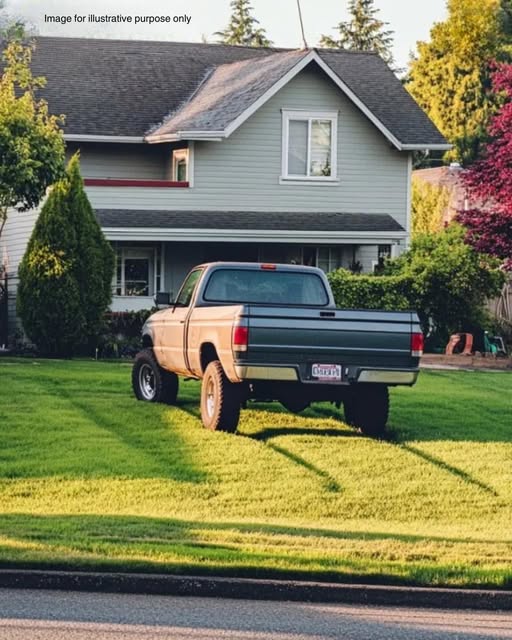Edna stood firm, her cane pressed against the soft earth of her ruined lawn. The young woman barely looked at her, eyes rolling as though the elderly widow’s words were a nuisance rather than a rightful protest. “It’s just grass,” the neighbor scoffed, waving a dismissive hand before walking away. The engine of the pickup rumbled, still sitting squarely on the memories Harold had once tended so lovingly.
That night, Edna sat at her kitchen table, her tea untouched and cold. Her heart ached at the thought that her sanctuary, her husband’s legacy, could be trampled on so carelessly. She thought of Tom—kind, dependable Tom—who always reminded her not to let others walk over her. And with that thought, a spark of steel stirred in her chest. She may have been old, but she wasn’t powerless.
The next morning, while the neighbors were gone, Edna put her plan into action. She had the town’s towing company on speed dial, her voice clear and steady as she explained the “abandoned vehicle” on private property. Within an hour, the truck was hooked up and hauled away, leaving only ruts in the soil where it had once squatted. Edna stood at her window, a quiet smile forming as the tow truck disappeared down the street.
When the neighbors returned and stormed over in fury, Edna met them at her door, her shoulders squared. “This is my home. My lawn. My memories,” she said with unwavering calm. “If you park here again, the result will be the same—or worse.” The couple left sputtering in anger, but they never parked on her grass again. For Edna, justice had been served, and Harold’s yard would remain sacred—protected by love, memory, and one widow’s ruthless resolve.




